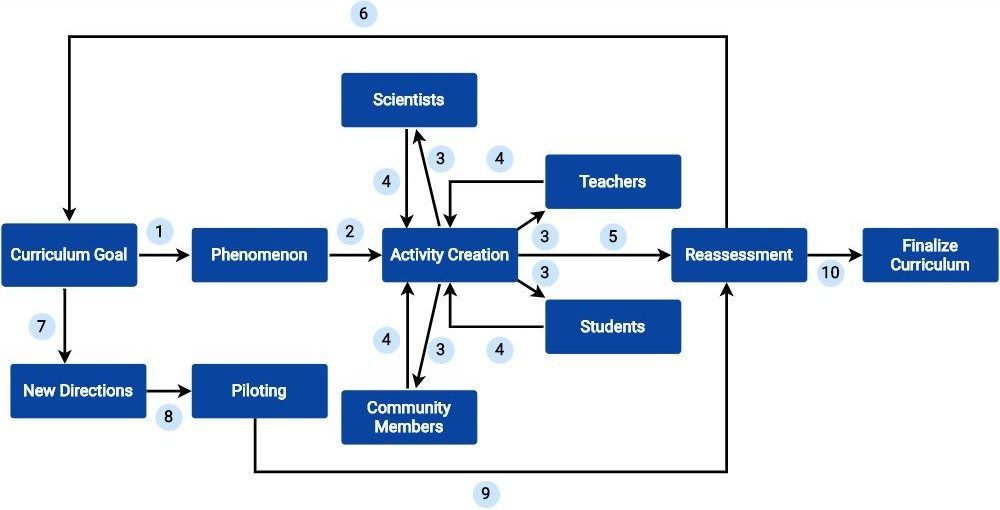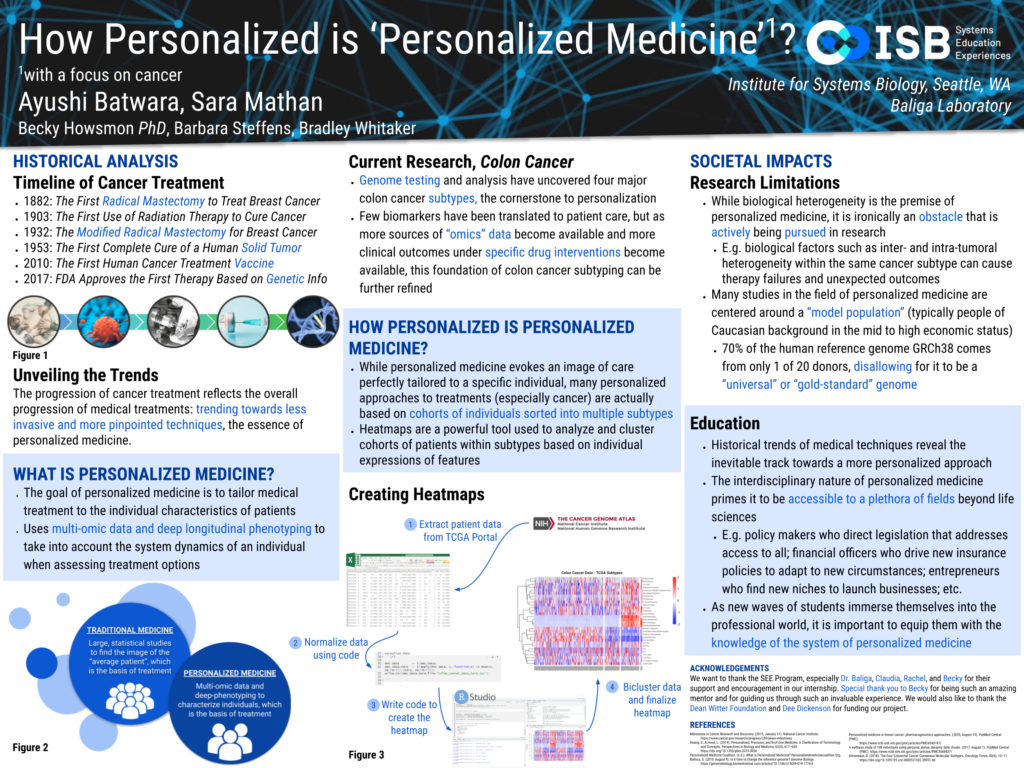PROJECT OVERVIEW

We are a part of the Systems Medicine team, a team that is contributing to the development of a series of 4 modules that are centered around teaching students about Systems Medicine.
Systems medicine is a holistic approach to medicine where different aspects of your health, including but not limited to your genetics, organ systems (including the microbiome), lifestyle, and disease markers, come together to proactively optimize wellness and minimize disease. This summer, we both specifically worked on the creation and development of Module 3, focused on personalized medicine.
CURRICULUM DEVELOPMENT
Curriculum development is truly an art form where seamless strokes of paint represent the organic flow of one topic to another. It is important to maintain oversight of the entire painting, yet still being able to see the minute details. Thus, each stroke adds its own flair, its impact.
Ayushi Batwara

The curriculum module that we helped develop nestles in the heart of the Systems Education Experiences Curriculum project, which reaches over 2.5 million students in 100 countries and is growing. To develop our module, we progressed through 3 different phases. In phase 1, we piloted and expressed our feedback on existing curriculum to ensure efficacy in the classroom. In phase 2, we took this to the next step by developing classroom activities that highlighted different angles of personalized medicine. For example, we curated an activity focused on teaching students how to create heatmaps and interpret data from an electronic health record. Finally, in phase 3, we culminated the work of our previous phases and formulated a curriculum outline for our module. This is still a work in progress but it effectively communicates the progression of the course in line with the curricular outcomes. As we navigated the curriculum development process, we discovered how complex and nonlinear it is. We experienced unexpected turns and new directions based on what we learned from current research and by talking with scientists, however we learned how revisiting the central goal of the curriculum could help us scope out new directions.

SOCIETAL IMPACTS
The Systems Medicine curriculum is such a meaningful educational course because as high school students like ourselves begin to navigate our career paths, it is crucial to expose them to the different disciplines that may not directly link to health but still can largely influence it. Our combined experiences through this internship have opened our eyes to the depth and breadth of the issues with our current education system, specifically in STEM. We are in the process of writing an op-ed article, which is an opinion piece, on how online learning can be the gateway to the future of STEM education. The premise of high school STEM education is often so curriculum- and textbook-driven that many times, it misses the educational goal of high school: to inspire students to pursue different career paths. We were inspired by the connections and interactions we had with STEM professionals at ISB and know that this is a valuable experience to bring into classrooms.
POSTER, as a PSA
Throughout our internship, we looked at research papers, spoke with scientists, debriefed in discussions, and ultimately, realized we knew more about Personalized Medicine than we ever did before. Thus, we decided to create a PSA that would highlight one of the biggest questions of personalized medicine: How personalized is ‘personalized medicine’?

ACKNOWLEDGEMENTS
We would like to thank Dr. Becky Howsmon, Barbara Steffens, Cynthia McIntyre, Bradley Whitaker for mentoring us throughout the project. We would also like to thank Dr. Jake Valenzuela for guiding us through the healthcare game gamification process. Finally, we would like to thank the SEE Program, Claudia Ludwig, Rachel Calder and Dr. Becky Howsmon for their support throughout the internship.
Our work was funded by the Dean Witter Foundation and Dee Dickinson.
